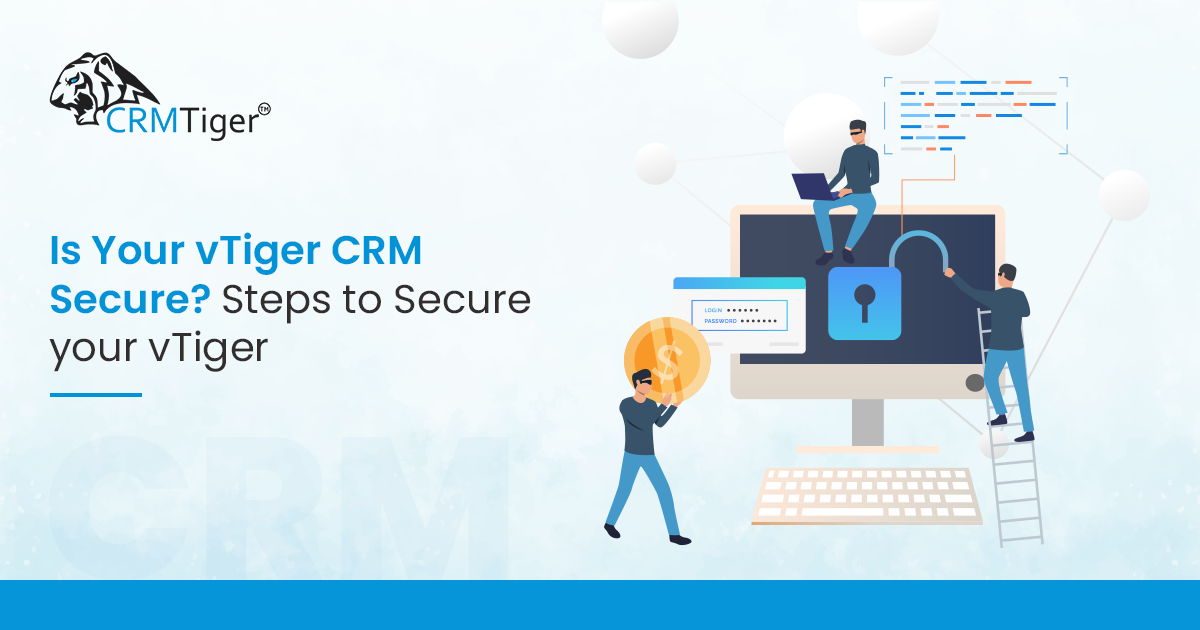
In today’s digital landscape, cybersecurity is more crucial than ever, especially for businesses like yours that rely on CRM systems to manage sensitive customer data. Unfortunately, cyber threats are on the rise, and recent incidents have highlighted just how vulnerable data can be to theft and hacking.
Cybersecurity is more crucial than ever, especially for businesses like yours that rely on CRM systems to manage sensitive customer data.
Unfortunately, cyber threats are on the rise, and recent incidents have highlighted just how vulnerable data can be to theft and hacking.
Some of the major data breach on various CRM systems:
- Salesforce Data Breach (2020): In 2020, Salesforce faced a significant data breach that exposed customer data from its platform.
- Zendesk Data Breach (2019): Zendesk, a popular CRM platform, experienced a major data breach that affected over 10,000 customers.
- HubSpot Data Breach (2018): HubSpot, a major CRM platform, had a breach in 2018 where unauthorized users were able to access customer data via a third-party integration.
- Microsoft Dynamics 365 and Power Apps Exposure (2021): A significant data exposure incident involving Microsoft Dynamics 365 and Power Apps was reported in 2021.
- Cambridge Analytica Scandal (2018): While not a CRM system breach per se, the infamous Cambridge Analytica scandal revolved around the misuse of personal data sourced from Facebook, which acted as a kind of CRM for political data analytics.
- T-Mobile Data Breach (2021): T-Mobile, which uses CRM systems for customer interaction management, suffered a massive data breach in 2021
Below is some of the Top hacking attempt in vTiger:
-
- Brute force Attack : Attackers may use automated tools or scripts to attempt multiple login combinations by systematically trying different username and password pairs.
- SQL Injection : SQL injection occurs when an attacker is able to manipulate SQL queries in order to interact with the database. This can allow attackers to view, alter, or delete data, or even execute administrative commands.
- Cross-Site Scripting (XSS) : Cross-Site Scripting (XSS) attacks occur when attackers inject malicious scripts into web pages viewed by other users.
- Privilege Escalation : Description: Privilege escalation happens when an attacker gains higher access levels within the system than they are authorized for. This may occur due to flaws in the CRM’s access control mechanisms.
- File Upload Vulnerabilities : Some versions of vTiger may allow users to upload files (e.g., images, documents) to the system. If not properly secured, attackers can upload malicious files, such as PHP scripts, to the server to execute arbitrary code.
- DoS and DDoS Attacks : DoS and DDoS attacks aim to overwhelm the vTiger CRM server by flooding it with an excessive number of requests, making it unavailable to legitimate users.
Vulnerabilities in vTiger CRM:
While vTiger is a powerful CRM tool, like any software, it is not immune to security threats. Some of the common vulnerabilities in vTiger CRM include:
- Field Encryption: vTiger Lacks data encryption of some of the important data store in database to avoid data theft
- IP Blocking: No option to disable any IP Address to access vTiger system to Login, This is very important to have vTiger to be secure from some specific unauthenticated IP
- 777 permission a security risk : Setting 777 permissions on directories in vTiger CRM, opens the door for attackers to exploit vulnerabilities, potentially leading to complete compromise of the CRM
- Weak Passwords: Many users still rely on simple or default passwords, making it easier for hackers to gain access.
- SQL Injection Risks: If proper input validation is not in place, SQL injection attacks can allow unauthorized users to manipulate your database.
- Inadequate Role-Based Permissions: Without proper user role management, sensitive data may be accessible to unauthorized users.
- Lack of Two-Factor Authentication (2FA): Without 2FA, accounts can be compromised even if login credentials are stolen.
How CRMTiger Can Help Enhance vTiger Security:
Our responsibility at CRMTiger is to protect business and customer data by providing vTiger CRM with the latest security features. Here’s what we can do to improve security concerns for your vTiger CRM system:
- Enhanced User Identity Verification: To implement security measures for users, we can deploy multi-factor authentication (MFA).
- Ring-fencing and Automated Installing of Security Updates: Your vTiger CRM can be installed with security updates and be patched so as to reduce the chances of risk.
- Role-Based Access Control: We will tailor your user groups so that only privileged users have access to sensitive information.
- Encryption Techniques: We can introduce telecommunications and files storage encryption that would ensure the safety of your business and customer’s data.
- Monitoring Activities and Sending Alerts: Adoption of efficient monitoring systems that will alert you of any occurrences that seem suspicious so that needed precautions can be taken.
- Security Audits: We routinely conduct security audits of your CRM system to safeguard it from anything malicious that may happen in the future.
Our Security Addons:
Conclusion:
It is no secret that the world is becoming more interconnected and cybercrime is on the rise. But with that in mind, safeguarding your CRM system becomes a dire priority. In this regard, we advise you to strengthen the security of your vTiger CRM, and CRMTiger will be with you to help.
If you want to consult with us on how we can assist you better secure your vTiger CRM from a variety of cyber threats, don’t hesitate to contact us.
Hope you found this blog useful.
We would be happy to assist you.
Please contact us on info@crmtiger.com if you needed further help from us.
Let us know if you need more information on this


Leave a Reply